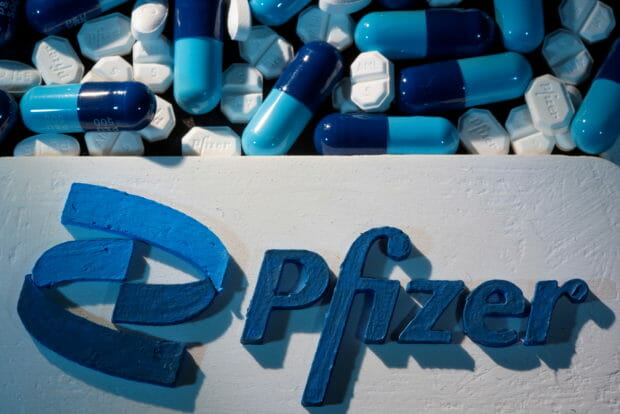Pfizer’s bowel disease drug succeeds in second late-stage study

FILE PHOTO: FILE PHOTO: A 3D printed Pfizer logo is placed near medicines from the same manufacturer in this illustration taken September 29, 2021. REUTERS/Dado Ruvic/Illustration/File Photo
Pfizer Inc said on Tuesday its experimental treatment for an inflammatory bowel disease, acquired last year as part of its $6.7 billion Arena Pharmaceuticals deal, succeeded in a second late-stage study.
Pfizer’s etrasimod showed improvement in patients with moderate to severe ulcerative colitis after 52 weeks. It met the twin main goals of statistically significant improvement in remission at week 12 and week 52 compared to placebo.
Globally, the market for inflammatory bowel diseases is about $20 billion, making it a lucrative target for drugmakers.
Ulcerative colitis, a chronic inflammatory disease of the colon, is a condition that leads to ulcers and causes abdominal pain, bloody stools and incontinence.
Results from the first late-stage study released last week showed the once-a-day drug improved symptoms in ulcerative colitis patients at week 12 compared to placebo.
Statistically significant improvements were also achieved in all key secondary goals for both the late-stage trials.
Pfizer expects to include data from these two late-stage studies, as well as long-term extensions of the studies, in its planned regulatory filings for etrasimod that are anticipated to begin later this year.
RELATED STORY: Month of March places spotlight on colorectal cancer
IBD a rising public health issue